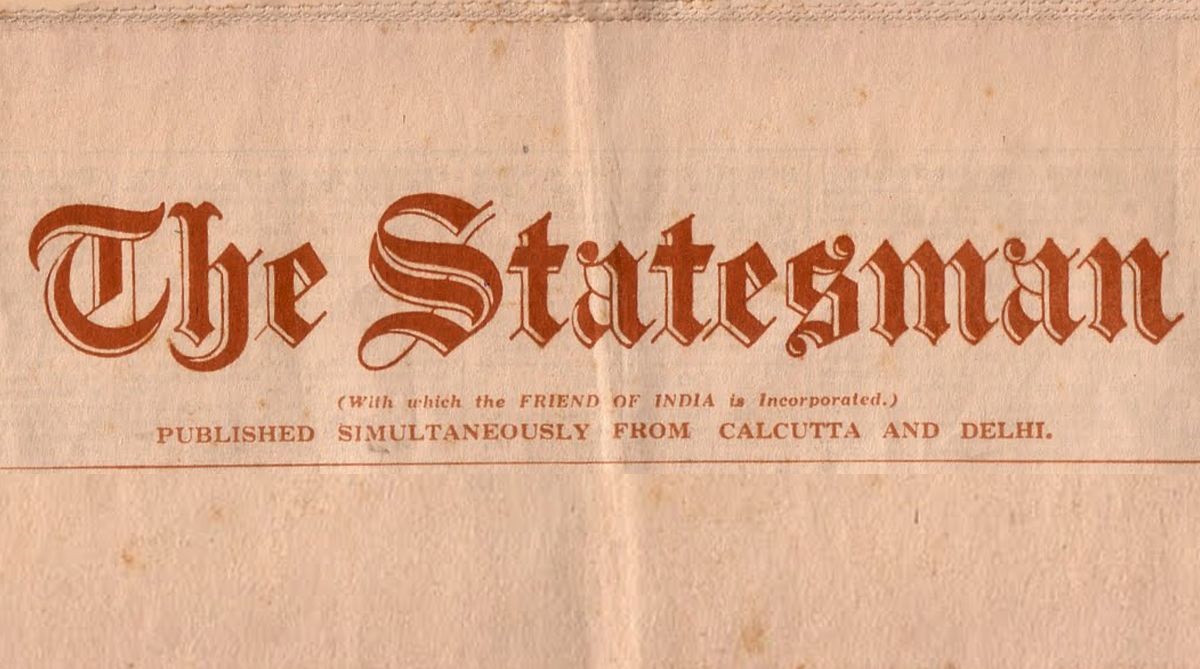A New Day, A New Dawn
There is a surprise for the readers. A special Poila Boishakh gift from none other than West Bengal chief minister Mamata Banerjee. Who has written a piece for this special edition.
On this day a century ago, these were some of the news items The Statesman readers got to read about India and the world.

OCCASIONAL NOTE
To judge from the Viceroy’s speech the Government of India, in the absence of pressure from public opinion analogous to that which exists at Home, refuse to be hustled over the demobilisation process. To date approximately 50,000 Indian troops only have been allowed to proceed to their homes. According to Sir William Meyer the number of Indian troops in this country and in the field amounted on April 1, 1918, to 490,000. The Viceroy announces that between June 1 and November 11 some 200,000 recruits were obtained. Adding the recruiting quotas yielded in the months of April and May there must on November 11 last have been about 750,000 Indian troops trained or training. At the present rate of progress demobilisation will have extended over some three years before the Indian forces are back to the old standard of 1914. In the interests of the taxpayers no less than those of the troops, the majority of whom are now engaged in doing nothing of public utility, some speeding up would not be out of place. The Americans, after their first Civil War, succeeded in returning to a peace footing in seventeen months, and even after the Franco-German war practically all the combatants had returned to their peacetime activities in a little over two years. The Indian Government have created some records for dilatoriness since the war began. It would be a pity to add to the list.
SIR STAMFORD RAFFLES CENTENARY
Advertisement
COLOMBO, FEB 7
The Singapore correspondent of the Times of Ceylon cables:- The Sir Stamford Raffles centenary was today celebrated by a public holiday in brilliant weather. The whole city was en fete and beflagged. In the morning, in the presence of thousands, H.E. the Governor unveiled a memorial tablet on the Raffles Statue, which has been removed from the centre of the Esplanade to a position in front of the Town Hall. Afterwards addresses were presented by the Chamber of Commerce and all communities and wreaths were laid at the foot of the statue. There were other celebrations, including a procession of 9,000 school children which converged on the race-course, where there was a huge public fair. The poor were fed and at night there were fireworks.
BERLIN S ESCAPE
A despatch from Major-General Trenchard, Commanding the Independent Air Force, explaining the policy of the attacks on Germany, says that the alternatives were sustained attacks on one large centre after another until each was destroyed, or attacks on as many industrial centres as possible. The latter plan was adopted because the forces were not sufficient to carry out the former, which even with greater forces would have taken another five years to execute. General Trenchard incidentally mentions that the group commanded by Colonel R. Muloch was established in England for bombing Berlin, but it only received machines capable of carrying out the work at the end of October, and although everybody worked day and night to get them ready for the attack, they were only completed three days before the signing of the armistice.
BLUEJACKET TO CAPTAIN
Believed to be the first bluejacket in the Navy to become Captain, Acting-Captain T.J.S. Lyne has been given the substantive rank of Captain. The promotion, announced in Saturday’s naval appointments, is for special war service. Thomas John Spence Lyne entered the Navy as a boy, and later qualified as a warrant officer in the gunnery branch. In the South African War he commanded No. 60 torpedo- boat, a patrol and despatch runner on the west coast of Cape Colony. His enterprise in bringing the vessel into port after its propeller shaft had been broken gained for him an urgent recommendation for promotion to the rank of Lieutenant. Since receiving his commission Captain Lyne did fine work on Chinese rivers, being thanked by the Admiralty for his surveying and other work. He was promoted Commander in September 1912. On the outbreak of war he was appointed to H.M.S. Ganges at Harwich for special service. It is for this service that he has been made Captain.
PUNJAB LEGISLATIVE COUNCIL
LAHORE, FEB 7
At today’s meeting of the Punjab Legislative Council, the Punjab Compulsory Primary Education Bill as amended by Select Committee was taken up for consideration. Some amendments made by the Select Committee were omitted. The Hon. Bakshi Sohan Lal’s amendment to the effect that the course of studies be raised from four to five years was lost after discussion. The clause extending the operation of the Bill to girls was dropped. The Bill as amended in Council was then passed.
Advertisement